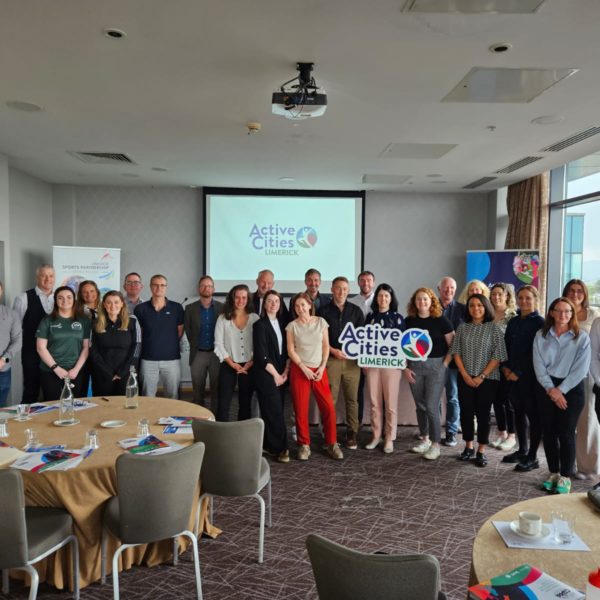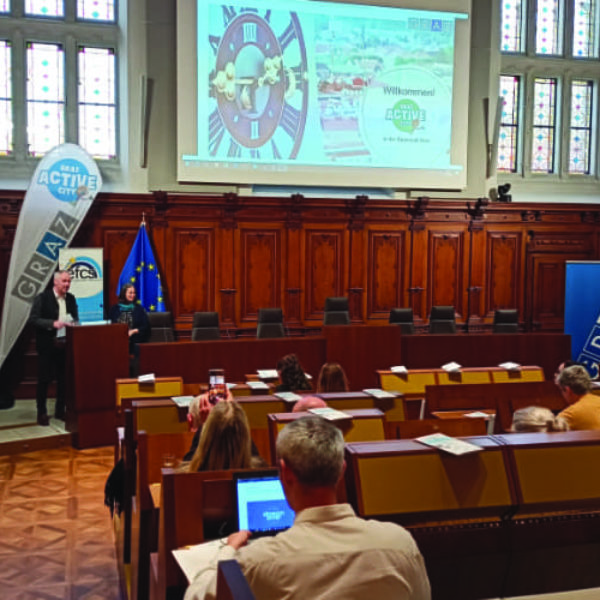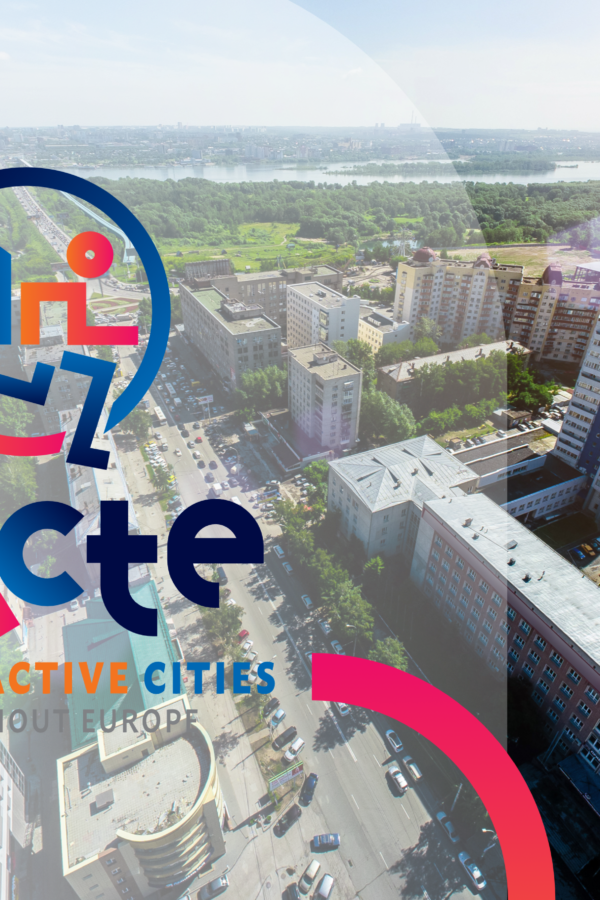Program of the second phase of Pacte+ project !
In the second phase of the PACTE+ project, our partners cities will launch a field intervention at their local level on a given topic. The selection of the cities of Limerick, Angers, Grasz, and Fredrikstad is based on the action they already implement to make sure that the project’s activities will be added to pre-existing actions.
Four main pillars have been determined in this context and will focus on Active cities Governance, Active in the Workplace, Active cities at School, and finally Active cities Mobility. Each one of them correspond to the main areas on which the Matrix for change offers solutions and ideas to develop a global Active City action plan.
For the implementation of the field interventions, the cities of Limerick, Angers, Grasz and Fredrikstad will receive a tailored support from the other project’s partners. Indeed, the experts within the consortium will provide an assistance to the cities in the development of a physical activity policy through regular training.
At the end, the objectives of the field interventions are in one hand to help the city to elaborate a comprehensive action on the implementation of an active city policy, and on the other hand, to exchange good practices, projects, ideas, and experiences, relevant to each local context, to create synergies between the four pilot cities.
Below, you may find a general presentation of each pillar that will be the focus of our field interventions.
Fed by the different achievements that will go along with the progression of the PACTE+ project, the information related to the pillars will be updated throughout the length of PACTE+.
To be active, a city needs a political will
As an expert on the topic and a partner of the project, EVALEO will assist the implementing partners to promote the development of Active Governance measures and to enhance active city policies, while explaining the various benefits the latter for the well-being of people living in urban areas.
To this end, a dissemination workshop will be organized in Limerick, Ireland to train the city official and civil servants to understand and recognize the benefits of being active, which will increase the provision of resources and ensure the issue is put on the agenda for political decision-making, through a concrete and comprehensive action plan integrating the other pillars.
Increase the place of sport, a solution to fight sedentarity from the youngest age
Active Schools is a term, which is used for several different initiatives. These initiatives share the idea of increasing children’s physical activity in school. The rationale behind, may, however, differ. Reasons to promote active schools are a reduction of physical activity among children, a concerning health status of children (for example obesity), psychosomatic disorders, back pain, as well as research findings concerning learning and developing. Recently published papers gave clear evidence concerning the relationship between physical activity and educational achievements.
In this regard, experts from ICSSPE will work with all four cities to help all the different stakeholders understand that every child, youth, and teenagers provide the perfect setting for an already “captured audience” to achieve physical activity goals. A dissemination workshop will take place in the partner’s city of Fredrikstad, Norway and will promote an environment for young people to grow into happy, healthy, and active citizens and help cities integrate it in their overall policies.
Sport and physical activity at work increase concentration and productivity
Promoting Activity in the workplace is crucial as there is evidence of its benefits for both the employees and the employers. From productivity, lower levels of sickness and absenteeism, as well as increased staff stability, and improved motivation, the consequences of increased physical activity in the workplace are numerous. In this context, companies and organisations should capitalise on it and enhance or develop strategies that will improve their employees’ health, both physically and mentally.
Throughout the implementation of the local interventions, experts will provide good practices, awareness campaigns, documentation, concrete examples of action to develop workplace health programmes, based on physical activity for an effective prevention.
In the framework of the project, a dissemination workshop will be organised with the partner’s city of Grasz, Austria to allow an exchange of practices and ideas between the pilot cities for the wider goals for the health of citizens.
An active city builds a new relationship to mobility to promote physical activity
Active Mobility is a mode of transportation for people (and goods) that relies on the physical activity of the human being for locomotion, i.e., walking and cycling as modes of transport. Active mobility on city level is abundant, but do not translate into tangible projects. Indeed, there is a persistent gap between theory and practice.
For the implementation of recommendations throughout the local interventions, experts will provide, through different channels, ways to engage with sport and health-friendly decision-makers to promote Active Mobility and approach appropriate politicians to promote healthier, more connected, and safer cities. Furthermore, a dissemination workshop will be welcome in the partner’s city of Angers, France to help the good practices and ideas on Active mobility to be spread to other stakeholders, as well as to discuss potential future collaborations.







